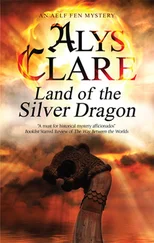Alys Clare - Mist Over the Water
Здесь есть возможность читать онлайн «Alys Clare - Mist Over the Water» весь текст электронной книги совершенно бесплатно (целиком полную версию без сокращений). В некоторых случаях можно слушать аудио, скачать через торрент в формате fb2 и присутствует краткое содержание. Год выпуска: 2011, Издательство: Ingram Distribution, Жанр: Исторический детектив, на английском языке. Описание произведения, (предисловие) а так же отзывы посетителей доступны на портале библиотеки ЛибКат.
- Название:Mist Over the Water
- Автор:
- Издательство:Ingram Distribution
- Жанр:
- Год:2011
- ISBN:нет данных
- Рейтинг книги:4 / 5. Голосов: 1
-
Избранное:Добавить в избранное
- Отзывы:
-
Ваша оценка:
- 80
- 1
- 2
- 3
- 4
- 5
Mist Over the Water: краткое содержание, описание и аннотация
Предлагаем к чтению аннотацию, описание, краткое содержание или предисловие (зависит от того, что написал сам автор книги «Mist Over the Water»). Если вы не нашли необходимую информацию о книге — напишите в комментариях, мы постараемся отыскать её.
Mist Over the Water — читать онлайн бесплатно полную книгу (весь текст) целиком
Ниже представлен текст книги, разбитый по страницам. Система сохранения места последней прочитанной страницы, позволяет с удобством читать онлайн бесплатно книгу «Mist Over the Water», без необходимости каждый раз заново искать на чём Вы остановились. Поставьте закладку, и сможете в любой момент перейти на страницу, на которой закончили чтение.
Интервал:
Закладка:
How would you go about trying to find out who had crept into your house during the night and what they had been after? I’ll tell you what I did: I tried to think why anyone might be interested in me, and straight away the answer flashed back that it must surely be to do with the pale youth. With Gewis, as I now knew him to be called. Yesterday I had gone to his village to find out anything I could about him. The four monks who guarded him must somehow have known where I was going. Perhaps they had made Gewis admit that he’d told me he was a carpenter’s son from Fulbourn. I did not allow myself to dwell on how they might have forced him to tell them. So, knowing I was curious about him, they had forestalled me, and one of them had gone there before me. He had found Gewis’s mother Asfrior in her little house and somehow persuaded her to set out with him; perhaps he’d concocted some tale about her son needing her so she’d gone willingly. Then he had struck her with something very hard, such as a lump of stone, and hidden her body under the trees. Again I heard those chilling words: It is safe now .
Safe? What did he mean? I was all too afraid that I knew, for surely he could only have been saying that, with Asfrior dead, it was safe for me to go to Fulbourn for my only source of information concerning Gewis lay dead with her head staved in.
Oh, oh , if I was right, what sort of men were they? What was it that had to be kept secret, so very secret that they had killed, and were going on killing, to prevent anybody finding out?
That thought was so awful that my mind shied away. Instead, I went over what I had learned from Asfrior’s neighbour. I pictured Edulf, twenty years older than his young wife, a man who bore a heavy weight on his shoulders and whose own father had been involved in some tragic mystery. I thought of how he had died, falling to his death while working on some grand new building. Whoever had been in charge had demanded the finest craftsmen; I pictured Edulf, no doubt pleased and flattered to have been chosen, setting off with a spring in his step, his tool bag light on his shoulder. But then I realized that wasn’t right, for he forgot his tools and his wife had to go after him with them.
I thought about that. The old woman hadn’t actually said it sounded an unlikely tale, but she hadn’t needed to. I agreed with her. A good workman with a reputation to uphold just doesn’t set off on a new job without the tools of his trade. Edulf would no more have forgotten his bag than I would have gone to see a sick patient without my satchel.
I wondered what had really happened. Gewis, I realized slowly, was even now in a place where he was being kept apart from the rest of the population. Had this urgent summons that had come for his father been to achieve a similar result? Was that why he had not taken his tools, because the story of working on a magnificent new building was just that, a story, and in reality he knew quite well where he was going and why?
Something must have gone wrong. Whatever they had hoped to do with Edulf, they had not succeeded, for there had been a frightful accident and he had broken his neck. He probably had not fallen from scaffolding while working on a carving; that, like the fictitious job itself, was nothing more than a cover story to satisfy the curious.
They — whoever they were — had wanted Edulf for some matter of great importance. They thought they had got him away to safety, but then something went wrong and he died. Now, four years on, they had come for his son Gewis instead.
Why? What did they want with the men of this family?
I had absolutely no idea.
My musings had achieved the desired effect: I had forgotten my fear. Well, most of it. I was hurrying along in the midst of the crowds of good Ely folk and, for the moment anyway, I felt quite safe. However, enemies were near, and I decided that, since they were taking an interest in my comings and goings, I ought to find out all I could about theirs. I knew that at least two of the quartet of burly monks had left Ely yesterday, for I had seen them just outside Fulbourn. I could not very well go inside the abbey to see if they were there, but I could check to see if they had set out across the water. Turning abruptly, I hurried down to the quayside from which I had embarked the previous noon.
I found the boatman who had given me directions and rowed me across — or, more accurately, he found me. He called out a cheery good morning and asked if I wanted to cross the water again today.
‘No, thanks,’ I replied. ‘Actually, I wanted to ask you something.’
‘Ask away,’ he said with a grin. He was young, he was quite handsome and I think he was flirting with me.
I leaned closer, taking advantage of his interest. ‘It’s a little delicate,’ I whispered.
His eyes widened, and he put a finger alongside his nose. ‘I won’t tell,’ he hissed dramatically.
I smiled. ‘I thought I saw a couple of the brethren from the abbey yesterday, when I was on my way to Fulbourn,’ I said, keeping my voice low. ‘Both of them are broad-set, tough-looking men and they have a sort of secretive, watchful look about them. I just wondered if you remember taking them across, or even if you told them, too, how to get to Fulbourn?’
Slowly, he shook his head. ‘No, can’t say as I recall anything like that.’
‘Oh.’ I’m not sure how I thought the information would have helped, but nevertheless I felt very disappointed.
But my ferryman was leaning close again. ‘I remember rowing them back though,’ he whispered.
‘You do?’
He nodded.
‘When?’
‘Ooh, mid afternoon.’
‘Did they-’ No. I had almost said, Did they look as if one of them had just done a murder? But it would have been an absurd question.
Then the boatman really surprised me. I suppose, thinking about it now, men like him study their passengers, observing small things that most of us would miss. When you’re pulling hard on the oars, endlessly rowing people to and fro, there can’t be much else to do except indulge in a bit of speculation.
He said, again speaking so quietly that I had to strain to listen, ‘I don’t know what else they may or may not be but they’re not monks.’
It took a moment for me to recover. Then I hissed, ‘How can you be so sure?’
He smiled grimly. ‘They were bearing arms.’
I realized that I did not want to believe him. ‘Most men carry a knife,’ I protested, ‘even monks, if they have to go on a journey that takes them out of the safety and sanctity of the abbey.’
‘That’s as maybe,’ he conceded. ‘I’m not talking about some tiddly knife.’
‘What then?’
He spoke right in my ear. ‘One of them caught his hem as he got out of the boat. He had a sword in a scabbard hidden under his robe.’
A sword. Still I would not be convinced. ‘But-’ I began, my mind whirling.
‘Anyway, they didn’t talk like monks,’ the boatman said with an air of finality.
‘What do you mean?’
He smiled again. ‘I know monks. I meet a great many of them, and I’m familiar with the way they address each other and how they speak. Believe me, your two burly men may have been dressed as holy men but they’re not.’
I believed him. My mind racing, I understood then that the quartet must be inside the abbey of Ely with the knowledge and, presumably, the consent of the abbot and the brethren. Whatever they were doing there, whatever mystery Gewis was caught up in, it went right up to the highest authority in the abbey of Ely.
And that was the most alarming thought of all.
I left my boatman and walked on along the quayside. I walked aimlessly, for I had much to think about. I kept close to the water — perhaps its proximity was a comfort, giving the illusion that at any moment I could summon a boat and get away, back to my home — and soon I found that I had reached an area of hectic activity, where a boatload of passengers had just disembarked and another group were waiting to go across.
Читать дальшеИнтервал:
Закладка:
Похожие книги на «Mist Over the Water»
Представляем Вашему вниманию похожие книги на «Mist Over the Water» списком для выбора. Мы отобрали схожую по названию и смыслу литературу в надежде предоставить читателям больше вариантов отыскать новые, интересные, ещё непрочитанные произведения.
Обсуждение, отзывы о книге «Mist Over the Water» и просто собственные мнения читателей. Оставьте ваши комментарии, напишите, что Вы думаете о произведении, его смысле или главных героях. Укажите что конкретно понравилось, а что нет, и почему Вы так считаете.












